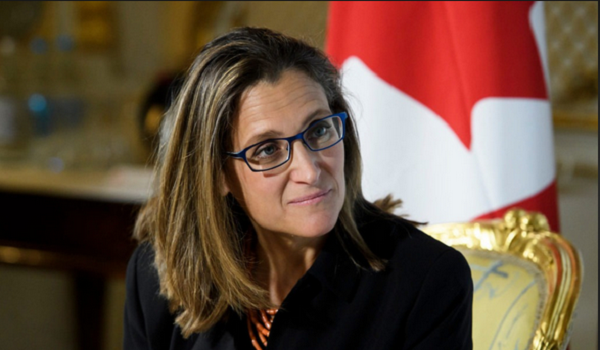Ontario introduces new measures for foreign students to protect ‘integrity’ of education system
Ontario is introducing new measures for international students to protect the “integrity” of the province’s postsecondary education system, including more oversight of the approval process, requiring all institutions to have a housing guarantee and strengthening enforcement of investigations into private career colleges.
The suite of measures, to be announced Friday by Ontario Minister of Colleges and Universities Jill Dunlop, also include a moratorium on any new public-private college partnerships, which occur when private colleges team up with public colleges through curriculum licensing agreements. The moratorium will be in place while the province works with the sector to assess the integrity of the current system.
The provincial changes, expected to take effect within the coming weeks, are being revealed days after the federal government announced a two-year cap on foreign student admissions in a bid to tackle skyrocketing growth and ease the pressure on services such as housing and health care.
“The challenges stemming from the recent spike in students coming to Canada, including predatory practices by bad-actor recruiters, misinformation regarding citizenship and permanent residency, false promises of guaranteed employment, and inadequate housing for students, require immediate attention and collaborative action,” Ms. Dunlop said in a news release.
“At the same time, we need to strengthen the links between Ontario’s labour market needs and the programs being offered to students so we can get even more people into rewarding careers in health care and the skilled trades.”
The Ontario government also said it will work with the postsecondary sector and Ottawa to explore ways to “further crack down on bad-actor recruiters who take advantage of international students and make dubious claims of employment and citizenship,” according to release.
Publicly-funded colleges have pushed back against Ottawa’s changes, saying the federal government has created chaos for prospective international students, while university and college leaders have said the permit cap will create financial risks for postsecondary schools in some parts of the country, which could lead to layoffs and program closings. Ontario’s public colleges host a large proportion of Canada’s international students. They accounted for about 40 per cent of study permits issued in 2022. Many of these schools rely on the fees foreign students pay, which are much higher than domestic tuition.
As part of the measures announced Friday, the provincial government says it will institute more oversight of the approval process for all international student programs at postsecondary institutions, to ensure quality standards are met and also that programs meet the needs of the labour market. It will also require all colleges and universities to have a housing guarantee to ensure adequate spaces are available for incoming international students.
Ontario also says it will “integrate enforcement efforts” across ministries to strengthen oversight of private career colleges, including through compliance investigations, to ensure timely responses to concerns and complaints. The National Association of Career Colleges has said that only roughly 10 per cent of international study permit applications are for registered career colleges.
Immigration Minister Marc Miller, who unveiled Ottawa’s changes on Monday, also said that beginning in September, international students who begin a study program at a school operating under a public-private partnership model will not be eligible for a post-graduation work permit. Ontario is expected to ask the federal government to explore ways to allow workers in in-demand fields, such as skilled trades and health care, to remain in Canada post-graduation.
The federal government is also requiring provinces to provide applicants new letters of attestation before their study permit applications can be processed. But no province outside of Quebec has such a system in place. Ontario’s new measures don’t address this new requirement.
Ottawa’s cap on international students will be applied equally across provinces on a per capita basis. Because some provinces accept disproportionately more foreign students than others, it is expected Ontario will have to cut intake by about 50 per cent.
British Columbia, another province with a high international student population, is expected to reveal its new plan next week to crack down on bad actors in the postsecondary sector.
The international student program has nearly tripled in size under the Liberal government. In 2015, there were 352,325 foreign students in Canada; by the end of 2023 that number had soared to 1,028,850. As of 2022, there were 411,985 international students in Ontario alone, according to the Canadian Bureau for International Education.
Study permits, issued by the federal government, allow foreign students to attend Canadian institutions. But it is up to provinces to regulate and fund the postsecondary sector.
A blue-ribbon panel on postsecondary finances has recommended the Ontario government lift its four-year freeze on domestic tuition prices and boost its grant to institutions by 10 per cent.
Ontario said it is continuing to review the recommendations and will announce further details at the end of February.
This article was reported by The Globe and Mail
















